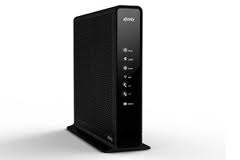 Providers establishing Internet Overcharging schemes like usage caps, so-called “consumption billing,” and speed throttles that force subscribers into expensive upgrades are planning for a growth industry in data consumption.
Providers establishing Internet Overcharging schemes like usage caps, so-called “consumption billing,” and speed throttles that force subscribers into expensive upgrades are planning for a growth industry in data consumption.
According to new research from a firm that specializes in market strategies, data usage is going up and fast. Providers that seek to monetize that usage could win enormous new profits just sitting back and waiting for customers to exceed the arbitrary usage caps some companies are now enforcing with their customers and take the proceeds to the bank.
iGR says the demand for connectivity inside the home is at an all-time high, with the biggest growth coming from wireless Wi-Fi connections. The more devices consumers associate with their home broadband connection, the greater the usage.
That is one of the reasons why providers are increasingly supplying customers with free or inexpensive Wi-Fi routers, to make the connections quick, simple, and potentially profitable down the road.
Comcast announced this week it would supply a free 802.11N “home gateway” free of charge to every new customer signing up for Blast!, Extreme 50 or Extreme 105 broadband service. In addition to wireless connectivity for every device in the home, the Xfinity Wireless Gateway also includes a built-in cable modem and phone service adapter. Time Warner Cable strongly encourages new DOCSIS 3 customers use their equipment for Wi-Fi service as well. AT&T has included its own wireless gateway with U-verse for a few years now.
The offer is hard to refuse. Nearly 80 percent of homes use wireless access, connecting cell phones, tablets, laptops, personal computers, game consoles, and even set top boxes that let customers stream video entertainment to their television sets.
iGR found average usage in heavily-connected homes at the all time high of 390GB per month. By 2015, that will rise to more than 440GB per month. Both numbers are well in excess of average consumption limits by providers like Comcast and AT&T, which top out at just 250GB per month. Of course, not all Wi-Fi usage is based on traffic from the Internet. Some users stream content between computers or devices within the home. But the research is clear — usage is growing, dramatically.
Video is by far the biggest factor, according to iGR. Their report, U.S. Home Broadband & WiFi Usage Forecast, 2011-2015, says the appetite for downloaded and streamed video is only growing.
Matt Vartabedian, vice president of the wireless and mobile research service at iGR, says home Wi-Fi has become inextricably woven into the personal, social and business fabric of today’s life.
Broadband is increasingly seen by consumers as an essential utility, as important as the home wired telephone, safe drinking water, and reliable electric and natural gas service.
Providers are positioning themselves to take advantage of the growth market in data by establishing what, at first glance, may seem to be generous (often inflexible) usage limits that remain unchanged years after introduction. While only a handful of consumers may cross those provider-imposed thresholds at first, within a few years, it will be more uncommon to remain within plan limits, especially if you watch online video.


 Subscribe
Subscribe

I don’t see how the cable companies are going to be able to hold the line, though. Time Warner and others were experimenting with cable caps in the region of 30GB / 60 GB month a couple of years ago, but they failed to stick, and most limits are now in the range of 150GB/month and up. I agree that more people will run afoul of the caps in future years, but I suspect they will have to maintain a delicate balance of keeping the caps low enough to drive extra revenue, but high enough that there isn’t a wholesale… Read more »
Suddenlink communications has raised its internet prices by 10 dollars. While that seems standard and now coverage worthy, their method in doing so is borderline unethical.
now apparently weather using their equipment to connect wirelessly, or your own, you still have to pay the fee.
that means that if you have purchased your own router, you must still pay them an extra 10 dollars a month to use that router.